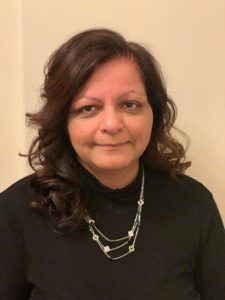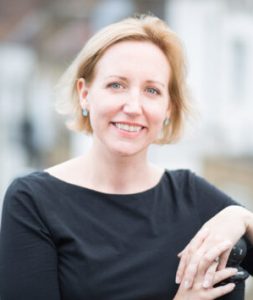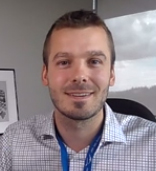Pathways in Nursing
Three Alumni Retrace Their Careers

Shelina (Bhimji) Rajan
BSN 1993
Born in Kenya, Shelina Rajan was raised partly in Mombasa and partly in Vancouver. Her parents, Hussein and Amina Bhimji came to Canada in 1974 to provide a better educational opportunity for their two daughters, even though it meant leaving behind a comfortable life, all their relatives, and everything familiar.
Shelina was driven to make the most of this sacrifice and chose to pursue nursing as a field where she could make the most significant difference. She received her Nursing Diploma from BC Institute of Technology in 1988. The first in her family to graduate with a university degree, Shelina went on to achieve a BScN from UBC in 1993, while working at Mount Saint Joseph Hospital. There, as Operations Leader for the Medicine Program from 2006-2008, she provided leadership for two acute medical inpatient units, working with multidisciplinary teams to ensure patient and family- focused care delivery.
After graduating from UBC, Shelina became an Assistant Instructor from 1994-1995 and also taught at BCIT, Langara College, and Vancouver Community College, where a bursary is named after her.
In 2009, in the role of Manager, Nursing Services, Shelina began working with HealthLink BC— a key entity in the provincial response to help address the COVID-19 pandemic. Today, as Acting Director of Nursing Services for the provincial telehealth non-emergency service, she has been overseeing her team of over 100 nurses and providing leadership for contact centre operations to ensure patient-centered care is delivered to the citizens of British Columbia.
Describing herself as a “total foodie,” Shelina loves to explore local eateries with her husband, Karim. They live in Burnaby with their three children, Armaan, Aadim, and Saara, all of whom attend the University of British Columbia.
“Now, more than ever, as the world faces a pandemic, we realize the important role that nurses play in making a difference every day. Beyond the time-honored reputation for compassion and dedication, lies a highly specialized profession, which is constantly evolving to address the needs of society.
Each of you plays a pivotal role in transforming health care and the patient experience—be innovative, be open to challenges, and embrace new perspectives. This will be an unforgettable journey!”

Gillian McKay
BSN 2009
Gillian McKay reached her current role by increments. She began her international development career as an English teacher in Ghana. In that setting she developed an interest in international public health but didn’t have the training she knew she needed to be effective in this technical area. So, she returned to school, obtaining a degree in nursing at UBC in 2009 with a focus on maternity care and mental health. As a Registered Nurse, Gillian developed her nursing capacity on Vancouver General Hospital’s acute medicine unit and developed skills that she would find useful in an international framework, but she was often frustrated that the health service didn’t reach people before they reached the point of requiring acute care. Consequently, she went back to school and obtained her Master’s in Public Health in 2011 from the London School of Hygiene and Tropical Medicine (LSHTM).
Gillian launched into a career in humanitarian action in low- to middle-income countries, first spending nine months in rural South Sudan amid a changing landscape of violence and displacement. The organisation she worked with supported twenty-five primary health care clinics, offering maternity services, child health care and other services. Following that experience, Gillian worked through the 2014-2015 Ebola epidemic in Sierra Leone for 9 months. In the early days of the outbreak conditions were very hard, with a lack of personal protective equipment, limited staff training, and inadequate outbreak management, putting staff and communities at risk of infection. Often sick people would be waiting days to be picked up by ambulance, meaning that in that time they could be infecting others in their households or communities. It was therefore important to work with communities to support them to develop their own locally relevant approaches to infection prevention and control, until such time as the outbreak system was robust enough to identify and care for the sick without delay.
Gillian’s work in Sierra Leone helped Gillian find the research passion that led her to a Doctorate of Public Health at the LSHTM: maternal health in outbreaks of infectious disease. Many women and girls were being negatively affected by the secondary effects of the Ebola outbreak: their access to quality care was impeded when much of the attention of the health service was diverted to stopping the outbreak, leaving maternity care under-resourced. Gillian took a break from her doctorate in 2019 to offer her service and experience to the World Health Organization during the Ebola crisis in the Democratic Republic of the Congo, where she continued to advocate for maternal health in that setting. She noted that huge strides had been made in Ebola prevention and care in the intervening years since West Africa, with two approved vaccines and effective therapeutic drugs available. The work was “gratifying – much better than it had been. But Ebola will still take too many lives, and many of them will be women’s lives, lost in childbirth due to an outbreak response that takes precedence over maternity care.”
Gillian works as an independent humanitarian health consultant in London, UK, currently remotely working on COVID-19, as she completes her Doctorate and eagerly awaits the arrival of her first child. See here for a link to her profile on the Alumni UBC webpage, and definitely reach out to her if you are looking to chat about a career in humanitarian health!
“My career path looks linear when you see it retrospectively. If you’d seen it in real-time, you’d see that there were a lot of false starts, loops and dead ends! This is normal! Your path will likely involve the same, so it’s important to be flexible. Take a chance on that interesting job or organisation that doesn’t exactly fit with your imagined “dream job”, you don’t know yet what great skills you’ll learn for the future, or who you’ll meet that will help you get that next role.”

Ben Fischer
BSN 2011
Ben Fischer grew up in a small town and made his first major career decision when he chose to go to UBC and take a degree in science rather than arts. With his biology degree in hand, Ben cast around for what to do with it and took a research position at St. Paul’s Hospital. There, he examined the effect of supportive and ancillary health services on medication adherence and patient outcomes. He found the work so interesting that it led him to pursue a career in health care. While working toward his nursing degree, Ben helped lead an initiative at Vancouver Native Health to provide street-entrenched youth with weekly, hot meals, and a safe space in Vancouver’s downtown eastside, gently guiding youth toward accessing primary care. Without the initiative, which has had nearly 15 years of success so far, health literature indicated that most youth who are on their own would not otherwise access primary care.
After graduation in 2011, Ben worked in an intensive care unit where he felt that at times, health care providers were not able to fulfill patients’ and families’ wishes surrounding end-of-life care. He began to wonder, “How can law be used as a tool to help these patients?” In 2014, Ben entered law school to find the answer.
As luck would have it, shortly before Ben obtained his law degree, the Supreme Court of Canada effectively reversed a decision made in the 1990s and Medical Assistance in Dying became a reality. Ben shifted his focus. Still drawn toward policy work, Ben joined a national firm, but was unable to relocate cities to focus on that work. So, Ben became involved in another meaningful area of legal work and drafted land codes to help First Nations without treaty agreements assert their independence from the Indian Act.
As valuable as this work was, Ben missed contributing to the health care sector. So, he made another career decision. He now oversees the Ambulatory Care portfolio for VGH, which sees tens of thousands of patient visits per year and is responsible for a large, multi-million dollar operating budget.
In addition to being a member of the Nursing Alumni committee, Ben is also a UBC senator, using to his advantage his extensive knowledge of the UBC campus, law, and the problem-solving techniques he acquired as a nurse.